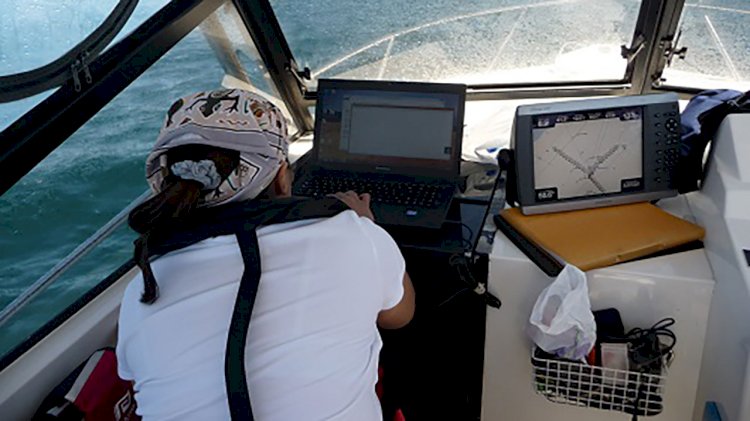Pioneering initiative in Portugal to monitor underwater noise
The jUMP project started in January 2020 and will last for two years

WavEC Offshore Renewables is pleased to announce the jUMP project, a joint action for underwater noise monitoring in Portuguese waters, with funding from National Fundo Azul.
The project is coordinated by WavEC and brings together ten Portuguese partners altogether: ISPA - Instituto Universitário, FCUL - Faculdade de Ciências da Universidade de Lisboa, LNEC - Laboratório Nacional de Engenharia Civil, APA - Administração do Porto de Aveiro, S.A., MBM - Museu da Baleia da Madeira, IN2SEA - Inovação no Mar, Lda, Fórum Oceano - Associação da Economia do Mar, Oceans-on, and QUERCUS.
The jUMP project started in January 2020 and will last for two years, with a total investment of 167 thousand euros, of which 149 thousand are supported by the Fundo Azul funding mechanism. The project aims to collect and promote information regarding noise pollution. Therefore several activities will be developed, such as the collection of acoustic data, the calibration of sound propagation models and activities of sharing and debate with stakeholders and the general public.
Erica Cruz, Project Manager and Researcher in Marine Bioacoustics at WavEC informs that this project represents the first national initiative entirely dedicated to underwater noise:
“We aim that the jUMP project also acts as a support tool in the implementation of the Marine Strategy Framework Directive in Portugal”.
The Marine Strategy Framework Directive (MSFD) (Directive 2008/56/EC) establishes a framework for community action in the field of marine environmental policy in order to achieve a Good Environmental Status (GES) in the marine waters of the Member States. To assess the GES, the MSFD sets out eleven descriptors that qualify the Good Environmental Status of European Union’s marine waters. Descriptor 11 refers to ways of introducing energy into the marine environment, including underwater noise.
The jUMP project aims, therefore, to implement actions to promote the discussion in the field of underwater noise and its impact on the marine environment and to develop tools to support the application of the Marine Strategy Framework Directive.
To achieve the specific objectives, the jUMP project is organized into six working fields:
• Activity 1: Project management and coordination;
• Activity 2: Information inventory;
• Activity 3: Monitoring of underwater noise: snapshots (point measurements at selected locations in continental waters);
• Activity 4: Development of a modelling tool;
• Activity 5: Monitoring of underwater noise in Portugal: definition of challenges and perspectives;
• Activity 6: Awareness, dissemination and communication activities.



























